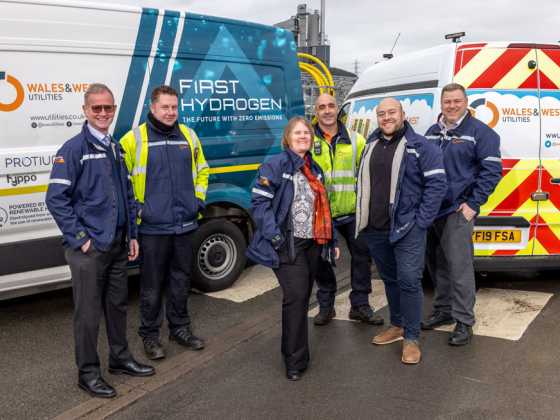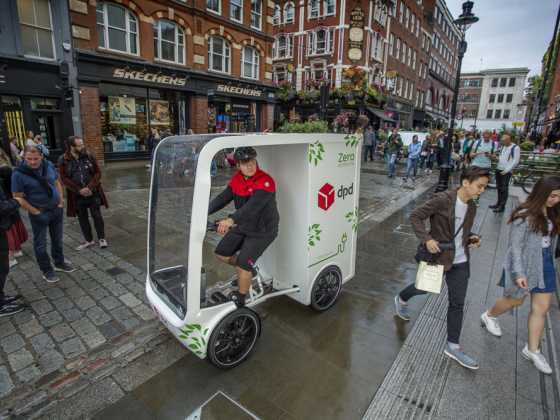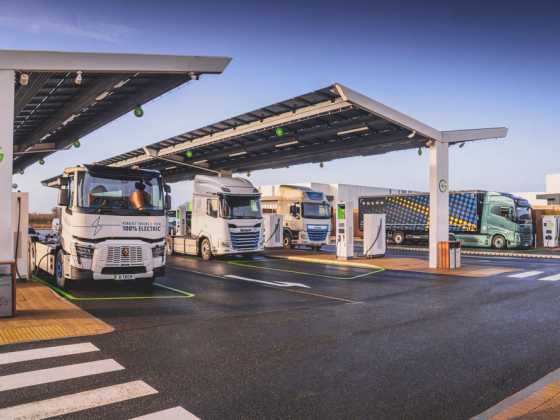On the electric vehicle map
The North East of England has taken on the low carbon vehicle industry and weaved it into areas such as manufacturing, infrastructure and training, writes Dr Colin Herron
 The low carbon vehicle revolution has arrived in North East England. In areas such as manufacturing, infrastructure, training and research, the region’s leading position has already put us on the global map.
The low carbon vehicle revolution has arrived in North East England. In areas such as manufacturing, infrastructure, training and research, the region’s leading position has already put us on the global map.
The sector is set to create hundreds of jobs for the North East and has grown because companies like Nissan in Sunderland, Smiths Electric Vehicles, Sevcon and AVID have spotted the opportunities developing in the automotive sector.
Pressure to find alternatives to fossil fuels and to meet climate change targets is not going to go away and clearly there are environmental arguments for encouraging the growth of industries like electric vehicles but we also believe that this sector will be a real economic driver for the region.
EARLY ADOPTERS
The North East identified the opportunities for low carbon vehicles from a very early stage. From 2008, discussions have taken place with manufacturers in the region and in early 2009, Nissan and One North East formed a partnership to explore the development of a zero-emission programme in the UK. The announcement in March 2010, that Nissan has chosen its Sunderland plant, as one of only three worldwide, to manufacture the Nissan LEAF, marked the start of an exciting time for both the region and this emerging industry.
The production of Nissan LEAF and the batteries represents a total Nissan investment of more than £420m in the Sunderland Plant and is expected to maintain about 2,250 jobs at Nissan and across the UK supply chain.
Gateshead College is gearing up to provide essential skills in electric vehicle development, manufacturing, servicing and emergency response with the development of its Skills Academy for Sustainable Manufacturing and Innovation. The pioneering new £8.4 million facility, currently under development at Nissan Way in Washington, will provide world-leading training to apprentices and people seeking emerging jobs created in the industry. The Academy is the first of its kind in the UK and once open in September 2011 will take trainees through all the essential elements of working with electric vehicles.
Courses include service and repair procedures, battery manufacturing and handling as well as health and safety and hazard management. The Academy will have excellent links to the region’s universities, including Sunderland University who is offering the UK’s first MSC in low carbon vehicle technology, allowing for career progression to degree and PHD levels.
TESTING, TESTING
Next door to the new training facility, is the North’s first open access test track facility which will be used to trial and develop these new technologies.
The test track and workshop building at Nissan Sunderland Plant has been signed over to Gateshead College on a 20-year lease allowing these facilities to be used commercially. £2.4 million has gone into the new facility to fund the lease and refurbish the on-site workshop transforming the centre into a hub for low carbon vehicle development.
companies, academic institutes and researchers in the low carbon vehicle industry, will be able to hire the test track and refurbished workshop on a shared or exclusive basis. This unique new facility will be a major boost for training, research and development in the low carbon vehicles sector in the UK and there is real critical mass being created in the North East, creating a real asset for regional and national companies.
Our low carbon credentials are further strengthened with the region setting out a road map for the roll-out of electric vehicle infrastructure and the region was chosen as one of the trial projects for OLEV’s Plugged in Places programme. We know that over 40 per cent of all commutes in the region are under 8km so the North East has great potential in the adoption of EVs. The prime objective of the Plugged in Places project is to ensure that drivers are never too far away from a charging post and that is why we will be seeing charging posts popping up right across the region. A range of forward-thinking organisations were in from the beginning helping to coordinate the bid and ensuring that we have a network which stretches from Berwick to Redcar and from South Tyneside to Hexham with a range of places in between. By 2013, an interconnected network of charging points will be in place.
QUICK CHARGE
A significant step forward has been taken at the start of this year when the UK’s first public quick charger was installed at the Metrocentre, Gateshead. The 50KW stations can recharge cars like the Nissan LEAF and Mitsubishi i-MiEV to up to 80 per cent of their capacity in 20-30 minutes and will be a major weapon for combating so-called ‘range anxiety’ in drivers using electric vehicles. Since then another two quick chargers have been installed in County Durham and in Berwick, Northumberland with a total of twelve being installed over the next year.
With this, comes opportunities. New opportunities for businesses and individuals are already being created from this new landscape and it is vital that we spread the message that this is not just the economy of the future, it is happening here and now. Just as the cities and regions which act first will be in the best position to benefit, it is the companies in those locations which spot the opportunities at an early stage who will be in the best position to reap the rewards from this exciting new era.
Image shows Trevor Mann, Nissan, Colin Herron, Janet Snaith, Sunderland Council and Mick Brophy, Gateshead College at the signing of the Test Track lease






